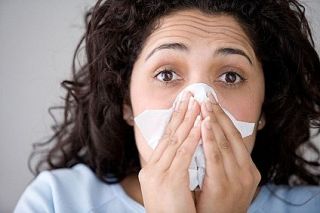Career
To Flu Shot or Not?
Evidence suggests flu shot efficacy may range from absent to moderate.
Posted December 6, 2012

I’ll come right out and say I’m writing this article on the heels of having been out for nearly a week after having gotten a terrible virus, possibly the flu. And I did not get my flu shot this year. My lack of willingness to get the shot is actually somewhat of a point of contention every year. As a therapist in a counseling center that is housed within a larger medical facility, we are highly encouraged to get the shot every year. After all, we work with students and are exposed to germs exponentially. And yet, I still take the same gamble every year after signing waivers and making proclamations that I will take full responsibility should I fall victim to the dreaded flu. To be honest, there are many reasons for my hesitations toward getting pricked. They range from the metaphorical to the empirical.
In public health, we often talk about the key element of prevention. So I take my daily vitamins faithfully, eat an apple a day, do my yoga, sleep 8-9 hours, and attempt my best to engage in the healthy behaviors which I encourage my clients to do. In psychology, we talk about self-care and dealing with unexpected challenges. The truth is, no matter how healthy you may be there is always the chance you will be exposed to a virus and become ill. The next step is accepting that contrary to popular belief, it’s actually ok to stay home and take care of yourself.
Have you ever watched a commercial for DayQuil or Tylenol Cold and Flu, or any other similar medication? Usually we see two shots. The before and after. Before resembles a grizzly bear, and after involves cleared nasal passages and floating through life with joy and ease. As any of us who have taken any of these medicines know, their efficacy is limited. Rest, fluids, and every other seemingly passive thing your doctor tells you to do is actually what heals you in time. But there is also more to the story. Meaning yes, you can stay healthy and take care of yourself should that falter. And no, the flu shot is not the miracle it is promised to be.
According to a review from the Cochrane Collaboration, vaccines save individuals roughly half a day of work on average. I don’t know about you, but to me, that’s nothing. That’s going home early due to a stress-induced migraine or a queasy stomach due to a bad salad. In my opinion, if you get sick, you get sick. Rarely do individuals ever try to catch a bug; they typically do in spite of their best efforts. And yet, we are suggesting that like robots who might need their batteries replaced or oil to make them squeak less (apologies for the Wizard of Oz imagery), we humans also need to take a shot so we don’t short circuit.
According to results from one of the largest meta-analyses conducted to date of nearly 6,000 studies on the flu, the vaccine only provides “moderate protection.” This can be further decreased when its efficacy is reduced or absent in some seasons. Of the thousands of studies reviewed, only 31 met the stringent inclusion criteria of Osterholm and colleagues (2011). Their study shed light on the major gaps in such research as well as the need for development of better vaccines. The study’s results concluded vaccines to be efficacious roughly 67% of the time when using the trivalent inactivated vaccine (this accounts for approximately 90% of vaccines administered). However, the samples this pertained to did not include those over age 65 or aged 2-17, the groups most often urged to obtain a vaccine. The efficacy of live attenuated influenza vaccine was at 75% for children aged 6 months to 7 years, with no studies meeting inclusion criteria for other age groups. The overall effectiveness of vaccines for individuals 18-65 was concluded to be around 59%.
The bottom line message from these studies suggests that while vaccines are somewhat effective, their powers so to speak have been largely exaggerated. According to the lead researcher of the meta-analysis, Dr. Michael Osterholm, the vaccine has been “overpromoted and overhyped.” He suggests much of this has been due to public relations. After all, let’s not forget that vaccines are big business. They are a multibillion dollar industry in fact. Interestingly, Dr. Osterholm, has suggested that such a low efficacy rate when compared to other vaccines is insufficient, stating, “if we had a childhood measles vaccine that only protected on average 59% of the time, we’d say that was a failure.” He sets the bar at around 85-95% efficacy for a successful vaccine.
Although representatives from the Centers for Disease Control seem to deny having over-promoted the vaccine and its promises, independent agencies are not so sure. From workplace colleagues at times breathing down my neck about this issue, I’d also agree that the facts about the flu vaccine seem to be less up for debate and more along the lines of an accepted gold standard. The conclusions of the meta-analysis are thought-provoking. It provides evidence that we simply need better vaccines that do what they claim. Dr. Osterholm’s message seems to be this. If we delude ourselves into thinking that what we have is good enough, then we really aren’t providing any impetus for further innovations and improvement. Our vaccines will stay as they are, only moderately effective.
My message is this. Let’s all do our best to stay healthy because we know the ramifications of staying home and falling behind. But even if you try and don’t quite succeed, stay home, rest up, and try not to panic about all that you’re falling behind from. Make like my favorites, the Taoists, and let go. They say by not doing everything gets done. Trust that and know you deserve time to rest and catch up on the messy reality television shows that can’t help but make you laugh—incidentally, laughter being some of the best medicine around.
Follow me on Twitter at MillenialMedia


